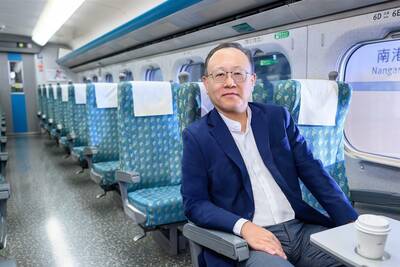"Stateless" descendants of former Chinese Nationalist Party (KMT) troops stationed in northern Myanmar and Thailand yesterday pleaded with the government to naturalize them.
Tens of thousands of KMT troops retreated across the Chinese border and stationed themselves in northern Myanmar and Thailand following the defeat of Chiang Kai-shek's (蔣介石) Nationalist forces by the Communists in the Chinese Civil War.
As the push to retake China never took place, many of the soldiers and their families were stranded in the region.
Since these people entered Myanmar and Thailand illegally, they are not recognized by the two countries. Their descendants have thus been denied citizenship, although many of them were born and raised in these countries.
Some of these stateless people faced a new challenge after coming to Taiwan to attend college.
Chen Chai-yi (
"I passed the college entrance exam held by Taiwan's Overseas Compatriot Affairs Commission [OCAC] and was accepted by a university in Taiwan in 2003," Chen said.
However, since she had no citizenship from either country, Chen purchased a forged Burmese passport to travel with, she said.
It was only once Chen arrived in the country that she discovered she would be required to prove her status before receiving Taiwanese citizenship.
"I wasn't aware of this and the OCAC didn't tell me when I took the exam [in Myanmar]," Chen said.
"I cannot return to Myanmar because I will be imprisoned for life for holding a forged passport, but my stay in Taiwan will also become illegal once I graduate from college," Chen said. "I'm basically stuck."
Liu Hsiao-hua (劉小華), chief executive of the Thai-Myanmar Region Chinese Offspring Refugee Service Association, estimated that more than 1,000 students from the region are in a similar situation.
Lee Lin-feng (
"What has blocked these people from obtaining Taiwanese citizenship is that neither they nor the Ministry of National Defense have any proof that they are descendants of former soldiers," Lee said. "Even when some had proof, they were unable to submit a certificate renouncing their original nationality."
Lee said she would seek a solution at the next Ministry of the Interior meeting, "considering the special circumstances."

The inspection equipment and data transmission system for new robotic dogs that Taipei is planning to use for sidewalk patrols were developed by a Taiwanese company, the city’s New Construction Office said today, dismissing concerns that the China-made robots could pose a security risk. The city is bringing in smart robotic dogs to help with sidewalk inspections, Taipei Deputy Mayor Lee Ssu-chuan (李四川) said on Facebook. Equipped with a panoramic surveillance system, the robots would be able to automatically flag problems and easily navigate narrow sidewalks, making inspections faster and more accurate, Lee said. By collecting more accurate data, they would help Taipei

STATS: Taiwan’s average life expectancy of 80.77 years was lower than that of Japan, Singapore and South Korea, but higher than in China, Malaysia and Indonesia Taiwan’s average life expectancy last year increased to 80.77 years, but was still not back to its pre-COVID-19 pandemic peak of 81.32 years in 2020, the Ministry of the Interior said yesterday. The average life expectancy last year increased the 0.54 years from 2023, the ministry said in a statement. For men and women, the average life expectancy last year was 77.42 years and 84.30 years respectively, up 0.48 years and 0.56 years from the previous year. Taiwan’s average life expectancy peaked at 81.32 years in 2020, as the nation was relatively unaffected by the pandemic that year. The metric

TAKING STOCK: The USMC is rebuilding a once-abandoned airfield in Palau to support large-scale ground operations as China’s missile range grows, Naval News reported The US Marine Corps (USMC) is considering new sites for stockpiling equipment in the West Pacific to harden military supply chains and enhance mobility across the Indo-Pacific region, US-based Naval News reported on Saturday. The proposed sites in Palau — one of Taiwan’s diplomatic allies — and Australia would enable a “rapid standup of stored equipment within a year” of the program’s approval, the report said, citing documents published by the USMC last month. In Palau, the service is rebuilding a formerly abandoned World War II-era airfield and establishing ancillary structures to support large-scale ground operations “as China’s missile range and magazine

Passengers on Taiwan High Speed Rail (THSR) will be required to use headphones and make phone calls in gangways under new “quiet travel” rules starting Sept. 22. THSR Chairman Shih Che (史哲) told media that THSR will run a three-month promotional campaign to ensure widespread adoption of the new rules. Those repeatedly ignoring the guidance face the potential termination of their transport contract, which can result in them getting escorted off the train, according to THSR. Shih shared his hope to cultivate an environment conducive to rest and reading for the train’s passengers, stating that these changes aim to “promote self-discipline” among passengers